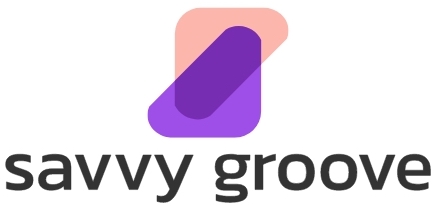In today’s digital age, having a strong online presence is crucial for the success of any small business. With the majority of consumers turning to search engines to find products and services, it is essential for small businesses to optimize their websites for search engines. This process, known as search engine optimization (SEO), involves making strategic changes to your website to improve its visibility and ranking on search engine results pages (SERPs). In this article, we will discuss the importance of SEO for small businesses and provide a comprehensive guide on how to optimize your small business website for search engines.
Understanding the Importance of Why You Should Optimize Your Small Business Website for Search Engines
Search engine optimization is the process of optimizing your website to rank higher on search engine results pages. This is important because the higher your website ranks, the more visible it will be to potential customers. In fact, studies have shown that the first page of search results receives 95% of web traffic, with the top three results accounting for 75% of clicks. This highlights the importance of having a strong SEO strategy in place for your small business website.
Moreover, SEO is a cost-effective way for small businesses to increase their online visibility and reach a larger audience. Unlike traditional marketing methods, such as print ads or TV commercials, SEO allows you to target specific keywords and reach potential customers who are actively searching for your products or services. This not only helps in driving more traffic to your website but also increases the chances of converting those visitors into paying customers.
Conducting Keyword Research to Target Your Audience
The first step in optimizing your small business website for search engines is to conduct keyword research. This involves identifying the keywords and phrases that your target audience is using to search for products or services similar to yours. There are various tools available, such as Google Keyword Planner and SEMrush, that can help you in this process.
When conducting keyword research, it is important to focus on long-tail keywords, which are longer and more specific phrases. These keywords have less competition and are more likely to attract highly targeted traffic to your website. For example, instead of targeting the broad keyword “shoes,” a small business selling handmade leather shoes can target a long-tail keyword like “handmade leather shoes for men.” This will not only help in attracting potential customers but also increase the chances of conversion.
Creating High-Quality and Relevant Content for Your Website
Once you have identified the keywords to target, the next step is to create high-quality and relevant content for your website. This includes not only the written content but also images, videos, and other multimedia elements. Search engines value fresh and informative content, and regularly updating your website with new content can help in improving your search engine rankings.
When creating content, it is important to keep in mind the keywords you have identified and incorporate them naturally into your content. However, avoid keyword stuffing, which is the practice of overusing keywords in an attempt to manipulate search engine rankings. This can result in penalties from search engines and harm your website’s visibility.
Utilizing On-Page Optimization Techniques for Better Visibility
On-page optimization refers to the changes made directly on your website to improve its visibility and ranking on search engines. This includes optimizing title tags, meta descriptions, and URLs with relevant keywords, as well as using header tags to structure your content. It is also important to ensure that your website is mobile-friendly, as more and more people are using their mobile devices to search for products and services.
Another important aspect of on-page optimization is optimizing your website’s loading speed. Studies have shown that 40% of people will abandon a website if it takes more than three seconds to load. This not only affects user experience but also impacts your website’s search engine rankings. You can use tools like Google PageSpeed Insights to analyze your website’s loading speed and make necessary improvements.
Building Quality Backlinks to Boost Your Website’s Authority
Backlinks, also known as inbound links, are links from other websites that direct users to your website. Search engines consider backlinks as a vote of confidence in your website’s content and authority. Therefore, having a strong backlink profile is crucial for improving your website’s search engine rankings.
However, it is important to note that not all backlinks are created equal. Quality backlinks from reputable and relevant websites hold more weight than spammy or irrelevant backlinks. You can build quality backlinks by creating valuable and shareable content, reaching out to other websites for guest blogging opportunities, and listing your business on online directories.
Tracking and Analyzing Your SEO Efforts for Continuous Improvement
SEO is an ongoing process, and it is important to track and analyze your efforts to see what is working and what needs improvement. This can be done through tools like Google Analytics, which provides valuable insights into your website’s traffic, user behavior, and conversion rates. You can also use tools like Google Search Console to monitor your website’s performance on search engines and identify any technical issues that may be affecting your rankings.
Search engine optimization is crucial for the success of small businesses in today’s digital landscape. By understanding the importance of SEO, conducting keyword research, creating high-quality content, utilizing on-page optimization techniques, building quality backlinks, and tracking and analyzing your efforts, you can optimize your small business website for search engines and attract more potential customers. Remember, SEO is a continuous process, and it is important to stay updated with the latest trends and algorithms to stay ahead of the competition.
